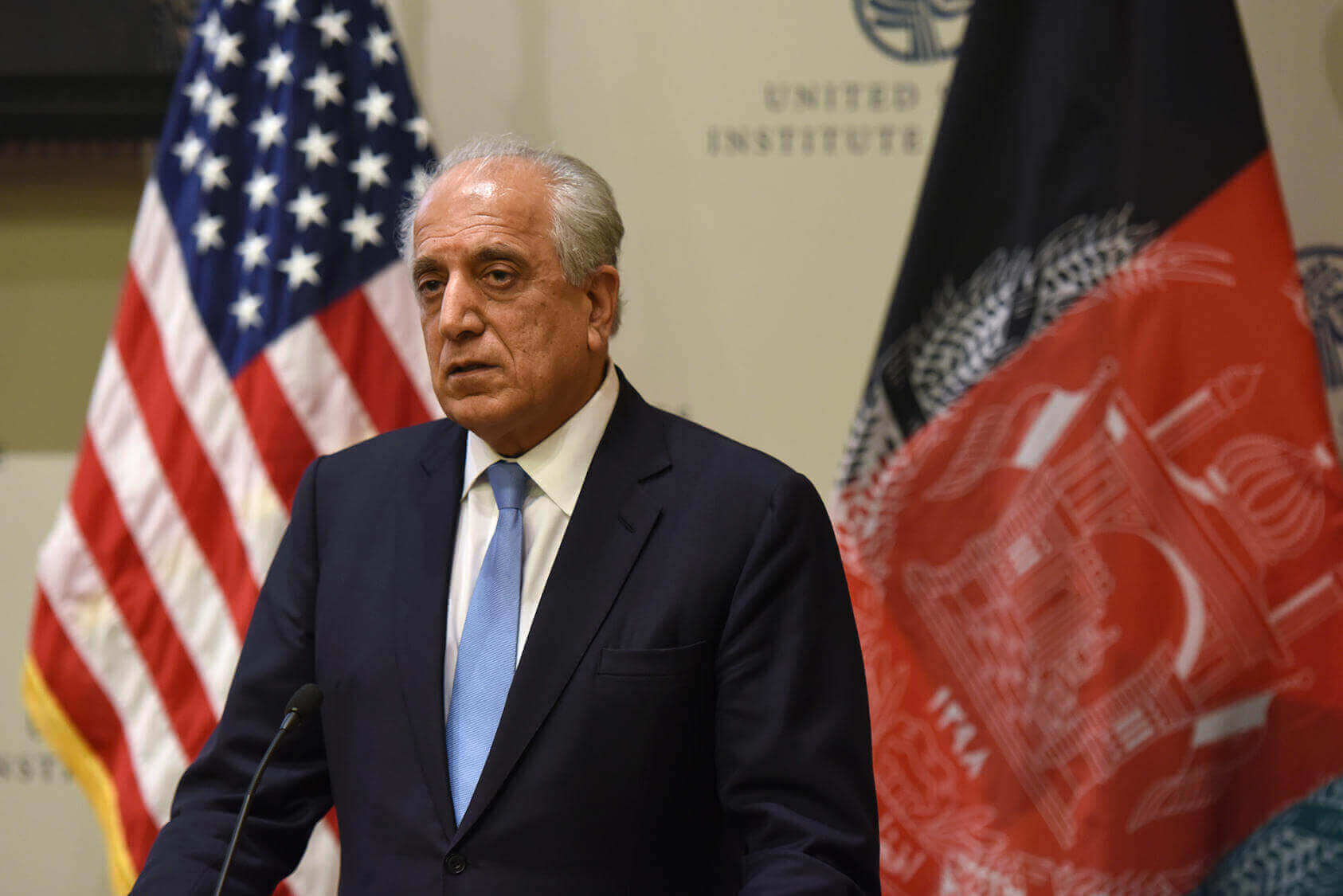US Special Representative for Afghanistan Reconciliation Zalmay Khalilzad concluded his week-long trip to South and Central Asia and the Middle East, during which he visited Pakistan, Afghanistan, Qatar, and Turkmenistan.
His first stop was to Doha, Qatar ahead of the 2nd round of intra-Afghan peace negotiations between the Afghan government and the Taliban. Khalilzad expressed his hope for “tangible progress”, wherein both Kabul and the Taliban “demonstrate that they are acting in the best interest of the Afghan people by making real compromises” and reach a “political settlement” that facilitates an “immediate significant reduction in violence” or a ceasefire.
The Taliban recently accused the US military of conducting military airstrikes on civilian areas, and warned that this could “jeopardize” the negotiations. Col. Sonny Leggett, the U.S. military spokesman in Afghanistan, dismissed these comments as “false”, saying that their only intent is to “defend Afghan forces” against attacks by the Taliban, and that Taliban militia have continued along their path of killing journalists, civic leaders, and government officials. At the same time, however, Secretary of State Mike Pompeo commended the Taliban for not killing ant US troops since signing the peace deal in February 2020.
In December, the Afghan government and the Taliban entered into their first written agreement after 19 years of war. At the time, Khalilzad said that both the warring sides agreed on a “three-page agreement codifying rules and procedures for their negotiations on a political map and comprehensive cease-fire”. That agreement set the stage for this week’s negotiations.
The two sides held a ‘preparatory’ meeting on Wednesday and are set to discuss the ‘peacemaking’ process in greater detail on Saturday, where they expect to discuss issues such as power-sharing and a ceasefire.
Amb. Khalilzad also travelled to Kabul, where he reiterated Washington’s “support for the Afghan people and security forces” and its interest in seeing the government and the Taliban agree on a ‘political roadmap’ “as soon as possible”.
Next, during his visit to Pakistan, Khalilzad spoke with Chief of the Army Staff (COAS) General Qamar Javed Bajwa and the Director-General of the Inter-Services Intelligence (ISI), Faiz Hameed, on issues of regional security, particularly with regards to the Afghan peace process. Amb. Khalilzad and Gen. Bajwa reaffirmed the two countries’ enduring commitment to achieving peace and stability in the region at large. Khalilzad noted Pakistan’s contribution towards the peace process.
It is not clear what his trip to Turkmenistan centred around, but given that it shares borders with both Afghanistan and Iran, it acts as a “critical geographic juncture”. In fact, in July, Khalilzad held meeting with officials from the C5+1 (which is comprised of Uzbekistan, Tajikistan, Turkmenistan, Kazakhstan and Kyrgyzstan plus the United States). Alongside holding discussions on “regional connectivity, trade, and development”, Khalilzad also called on each of the countries to “promote and encourage a political settlement” in Afghanistan.
The US State Department describes Turkmenistan as a “closed society with an authoritarian political system and centralised economy”. Washington cooperates with Ashgabat via “border and regional security programs, educational and cultural exchanges, and English-language training”. At the same time, Turkmenistan holds “vast natural gas and oil resources” and has signed a trade and investment agreement with the US.
US Special Representative Khalilzad Visits Qatar, Afghanistan, Pakistan, and Turkmenistan
During his tour, US Special Representative for Afghanistan Reconciliation Zalmay Khalilzad spoke with regional stakeholders about the Afghan peace process.
January 9, 2021

IMAGE SOURCE: UNITED STATES INSTITUTE FOR PEACEUS Special Representative for Afghanistan Reconciliation Zalmay Khalilzad
